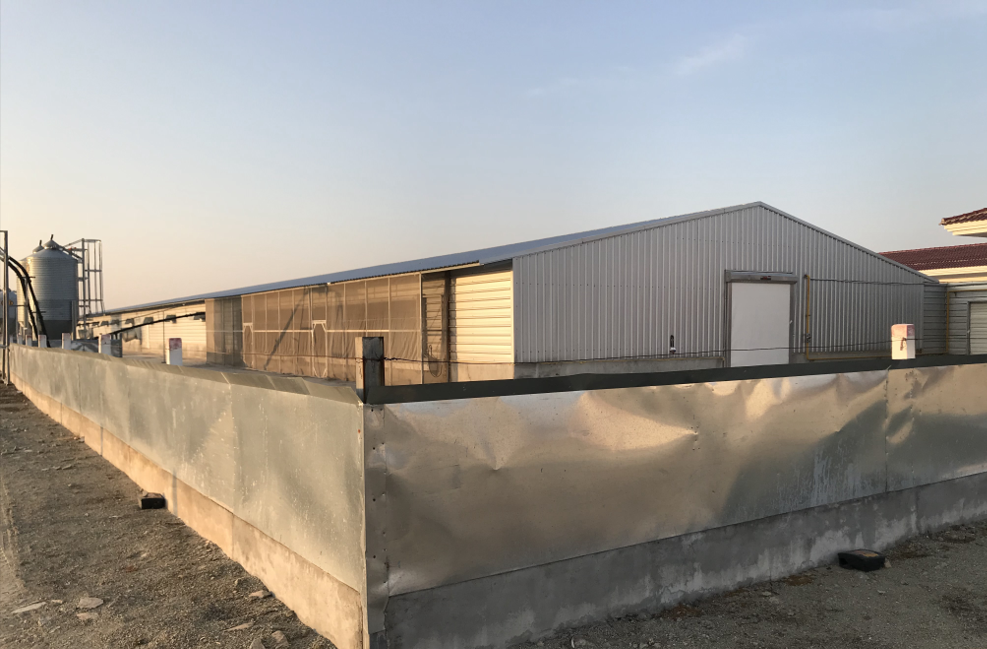Here are the key points of a successful biosecurity program:
Restrict non-essential visitors to the farm. Record all approved visitors and their previous farm visits and/or poultry contacts. There is a minimum "no contact with birds" quarantine period required before visitors enter the farm (e.g. 72 hours).
Farm supervisors and technicians should always visit younger flocks before older flocks. If visiting multiple farms in one day, arrange for smaller farms at the beginning of the day and then visit other farms according to the actual age of the birds. If visiting a chicken farm with a suspected/known disease, technicians and farm supervisors should not visit other farms to prevent the transfer of disease pathogens to other flocks.
Do not contact non-company poultry, especially free-range poultry.
If the equipment must come from another farm, it must be cleaned and disinfected before entering the farm and again when it arrives at the receiving farm.
Wheel soaking or wheel spraying facilities are available at the farm entrance. Only essential vehicles are allowed on site.
The farm should be fenced.

Always keep the poultry house and farm gates locked.
You should not keep other poultry on the same farm as your poultry. Farm animals other than poultry should be fenced separately and have a different entrance to the poultry farm business.
Do not bring pet animals into or around domestic poultry houses.
All farms should have pest control plans in place, which include frequent monitoring of rodent activity. An adequate supply of rodent bait must be maintained in the designated rodent control box.
All houses should be pest free (rodents and wild birds).
The area around the poultry house should be free of vegetation, debris, and useless equipment that could harbor pests.
Clean up feed spills as soon as possible and repair leaking feed tanks or pipes.
Farms should have toilets and hand-washing facilities separate from poultry sheds.
Ideally, poultry farms should be kept away from other poultry farms and away from rivers and ponds to limit contact with wild birds.
If equipment needs to be brought to the farm, it must be sterilized according to the company's biosafety protocol.
The practice is to transport the feed from outside the farm fence to the central feed tank, and then use farm vehicles to move the feed from the central feed tank to the feed tower in each coop.
Special protective clothing and footwear changing facilities should be provided at the entrance to the farm. Ideally, the "shower time control" strategy is considered a practice. It is recommended to take regular five-minute hot showers with an auxiliary disinfectant.
Hand disinfection facilities are provided at the entrance of each house.
Provide well-maintained foot baths at the entrance to each poultry house.
Place all utility meters and equipment, such as gas, water, and electricity, off the farm to prevent supply trucks and people from entering the farm.
Foot baths placed outside must have a lid to prevent rainwater from diluting the disinfectant and prevent environmental contamination.
Clean shoes before using a foot bath to remove organic material to prevent organic material that may inactivate the disinfectant.
Foot bath disinfectant should have a wide range of activity and rapid action.
Install a boot change system at the entrance to each shed.
A single batch of same-age broiler chickens is strongly recommended to reduce the risk of repeated infection with pathogens and/or vaccines in the field.
Chicks should come from mothers of similar age with the same vaccination status.
The culling of the flock must be completed before the arrival of the chicks.
Protective clothing should be provided to those who catch chickens. Equipment such as chicken coops/crates and forklifts must be cleaned and disinfected before entering the farm, especially when understaffed. If the farm and house are cleaned, it must be at least 3 days from the last disinfection of the farm to the first entry of chickens. Farms that reuse bedding require an interval of at least 14 days. If using an antibiotic-free plan, it is recommended to increase the interval (e.g., 18 days or more) to optimize the health and well-being of the bird.
If reusing bedding between flocks, remove all wet or caked bedding and turn on the ventilation and heating system in a timely manner to release ammonia build-up and encourage drying of bedding before placing new flocks.
Test the water for mineral levels and microbial quality at least once a year.
Frequent biosafety audits are conducted at each farm, auditing the entire site to ensure that the company's expectations for cleanliness, disinfection and biosafety are met.






